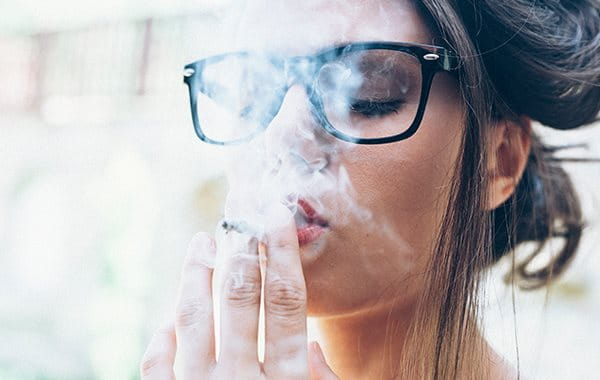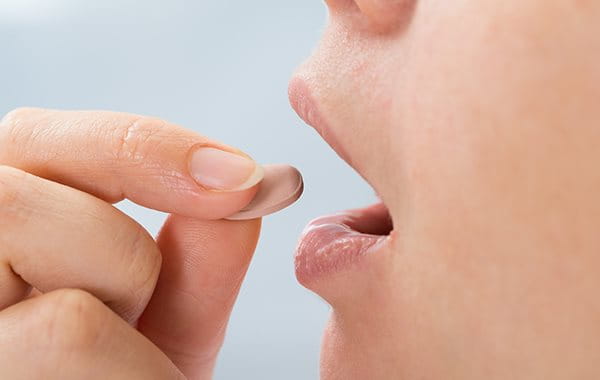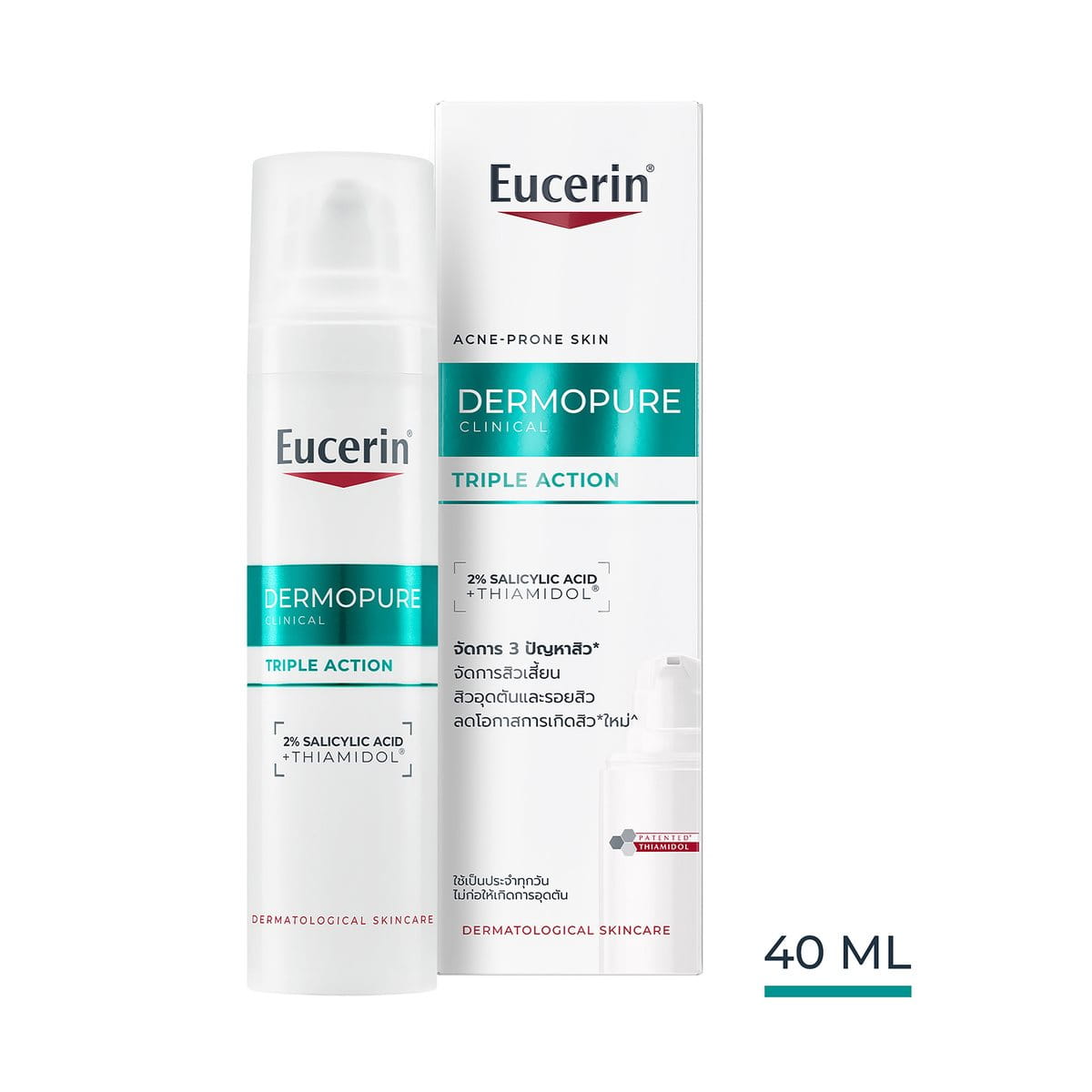There are a variety of ways that you can treat and help prevent blemishes and care for skin prone to acne. Acne medication is, of course, one option but there are other, non-medical things you can do, and things you can avoid, that might help you to keep your acne under control. This article looks at the external factors that can cause, trigger and exacerbate acne and makes suggestions on what you can do to help reduce their potential impact and give your skin the care it needs.
If you’d like to find out more about the internal processes that cause blackheads, whiteheads and pimples to form and how they develop into acne take a look at the development of acne and acne and hormones.
What causes/triggers acne and makes it worse?
Sadly, there is no such thing as a ‘cure’ for acne, but understanding the potential triggers that can both cause and exacerbate blemishes may help you to alleviate symptoms and improve your skin condition. Here are some of the most common ones:
Diet

While research into the influence of diet on acne is both inconclusive and controversial, most scientists agree that a high Glycemic Index and dairy products may exacerbate blemish-prone skin. There is also considerable debate around the possible influence of other foods.
Smoking

Research indicates that smoking exacerbates acne by causing oxidative stress to skin and altering sebum composition.
A study carried out on 1,000 women also revealed that the proportion of acne sufferers was significantly higher among smokers (approx. 40 %) than among non-smokers (approx. 10 %)1.
1- Capitanio et al from British Journal of Dermatology 2007 157, pp1040–1085
Medication

Medications such as antidepressants, antiepileptics and steroids are known to promote acne. Prolonged use of antibiotics can also damage the flora in the gut and impact on skin health.
Excessive use of androgens can also promote the development of acne - Acne Fulminans, a rare condition, is a side effect of the use and abuse of anabolic steroids by some bodybuilders.
Inappropriate skincare

Regular and thorough cleansing is an important step in caring for blemish-prone skin but harsh, soap-based cleansers and water that is too hot can disrupt skin’s natural balance and exacerbate symptoms.
Some skincare products and make-up are also greasy and comedogenic (meaning they clog pores and cause acne).
Stress

Some researchers believe that stress can cause our body to produce more insulin (insulin is a hormone produced in the Pancreas which makes it possible for human cells to use and store the sugar from carbohydrates). Insulin stimulates androgens (male hormones) which, in turn, stimulate excess sebum production (seborrhea) and hyperkeritanisation (the overproduction of cells that leads to blocked sebaceous glands) which are key stages in the development of blemishes. Find out more in acne and hormones and in the development of acne.
The speed at which wounds heal is also reduced significantly when a person is under stress2.
Long-term anxiety in particular does the skin no good and can allow acne to `flourish’. Living with acne can also be difficult and can impact on someone’s self-confidence causing further stress which, in turn, exacerbates their skin. You can find out more about the psychological impact of acne and stress.
2 - Marucha PT, Kiecolt- Glaser JK, Favagehi M. Mucosal wound healing is impaired by examination stress. Psychosom. Med. 1998;60:362-5
Rubbing
Prolonged pressure and friction on skin can exacerbate acne. Friction acne - known as Acne Mechanica - is caused when tight clothing or straps (e.g. bras, wetsuits and the chin straps on helmets) hold sweat against the skin. The irritation caused by this sweat increases sebum production and leads to the development of blemishes. Skin irritation can also cause itching and if you scratch a lot, or keep touching the area, you will help spread bacteria and exacerbate your acne.
Sunshine

Opinions vary on sunshine versus acne, but − while people with acne sometimes think that their skin improves in the sun − most specialists agree that UV radiation makes acne worse and you can find out why in acne and sun protection.
Skin peeling products and many acne medications also make skin more sensitive to light and excessive sunlight can increase the risk of pigmentation issues and scarring. Find out how in acne and hyperpigmentation and acne and scarring.
What can I do to help prevent acne?
Our skin is as individual as we are, so what works for one, may not work for another, but here are some steps you can take that might help your skin condition:
Diet
Nutritional science and common sense tell us that a healthy, balanced diet is the key to a healthy body and healthy skin, so try to enjoy a varied diet and keep a personal record (some dermatologists call this a `skin diary`) of anything you eat that you think may trigger blemishes and acne in your skin.
If this doesn’t help them you may want to try an `elimination diet`. The best way to do this is to eliminate the possible culprits (such as high G.I. and sugary foods and dairy products). You can find out more about this in what changes can I make to my diet to help my blemish-prone skin?
Give up smoking. If you can’t try, at least, to reduce your nicotine consumption.
Medication
If you think the medication you are taking is exacerbating your acne, consult your doctor. They may well be able to recommend an alternative.
Skincare
Cleanse skin in the morning and evening. Be sure to remove all make-up before you go to bed at night.
Choose cleansers, moisturisers and treatment products that have been specially formulated for blemish-prone skin and acne. Use only products that are proven non-comedogenic (i.e. that do not cause acne) and, if you are undergoing medical acne treatment, make sure you use products that are compatible with your therapy.
The Eucerin ProAcne Solution range is proven to reduce blemishes, soothe irritation and prevent new blemishes from appearing and includes products that work alongside medical acne treatments. Find out skincare products and routine for blemish-prone skin.
Stress
Try and find a way to unwind. Exercise will help you to keep your body in good shape (and feel more in control too). You can find some tips for reducing stress here.
Rubbing
The best steps you can take to avoid friction acne are a) to take a shower as soon as possible after sport and b) to wear cotton rather than Lycra clothing whenever possible. Try also to keep your hands away from your face and clean your mobile phone, pillow cases and towels regularly to keep bacteria to a minimum.
Sunshine
Enjoy the sunshine in moderation. Avoid peak hours, and protect your skin with an appropriate product such as Eucerin Sun Fluid Photoaging Control SPF 50.
Only by continually trying things out over a matter of weeks can you find out which of the various influencing factors are specifically relevant to you and can improve your skin condition. But, if symptoms persist and are bothering you, don’t forget that there‘s a wide range of medical options available to help. Consult your doctor for advice on the best treatment options for your skin.



